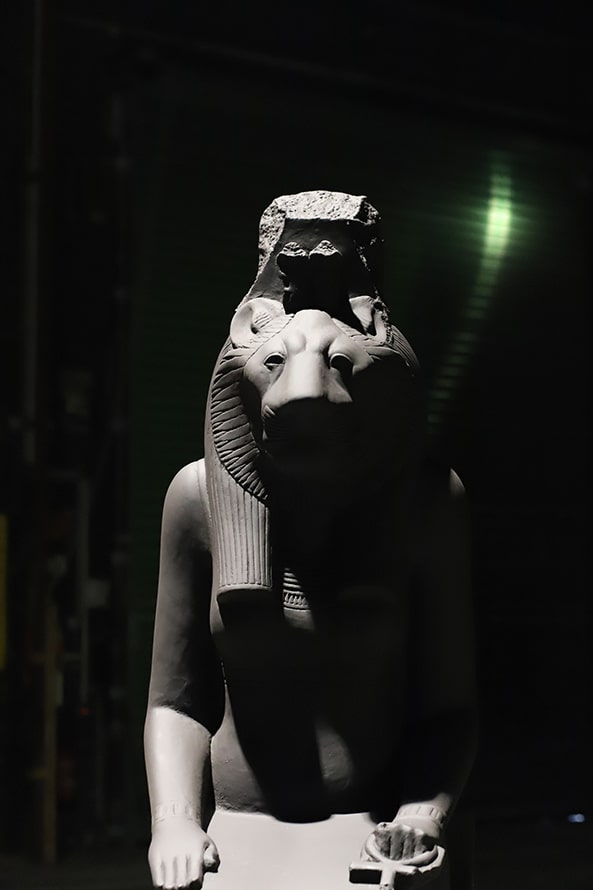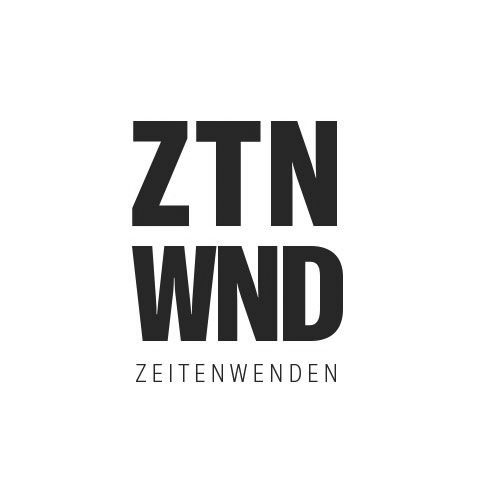The interdisciplinary festival “BLACK LAND, RED LAND – RESTITUTE” critically examines museum and institutional dispositifs and approaches selected artefacts and narratives from the “holdings” of the Egyptian Museums in Berlin, Germany and Turin, Italy artistically and discursively. The approaches developed in the team and with artists will be shared and discussed with the audience over four days in December, from 21 December to 28 December 2023 at silent green, Kunstquartier Bethanien, Palais am Festungsgraben and in public space.
Fig. above: Statue of Sakhmet (2023). Photo Lutz Knospe 4
The imperial scientific expeditions to Egypt in the 19th century served the European exploration of the African continent, both in terms of documenting and surveying the country as well as acquiring cultural entities. The expeditions took place in the context of the colonial campaigns of conquest from the 16th century onwards and transferred their own forms of knowledge and life to non-European territories. Cultural and spiritual artefacts, parts of religious sites and human remains were exported from the countries as a result of these ‘adventures’. In various places in Europe, in Germany, Italy, France (and other parts of the world), they were to fill the newly emerging museums as centres of presentation and knowledge production. The sciences, which were differentiating themselves at this time, invented the meanings of these artefacts and presented them as “objects” at their disposal. The museums declared themselves to be universalist administrators of a “world cultural heritage” of mankind. In line with their self-image, they grouped the artefacts into “collections” and presented them according to their own ideas. To this day, only a small fraction of “humanity” has access to European museums and large parts of the so-called societies of origin have never been able to visit the cultural and spiritual artefacts of their ancestors.
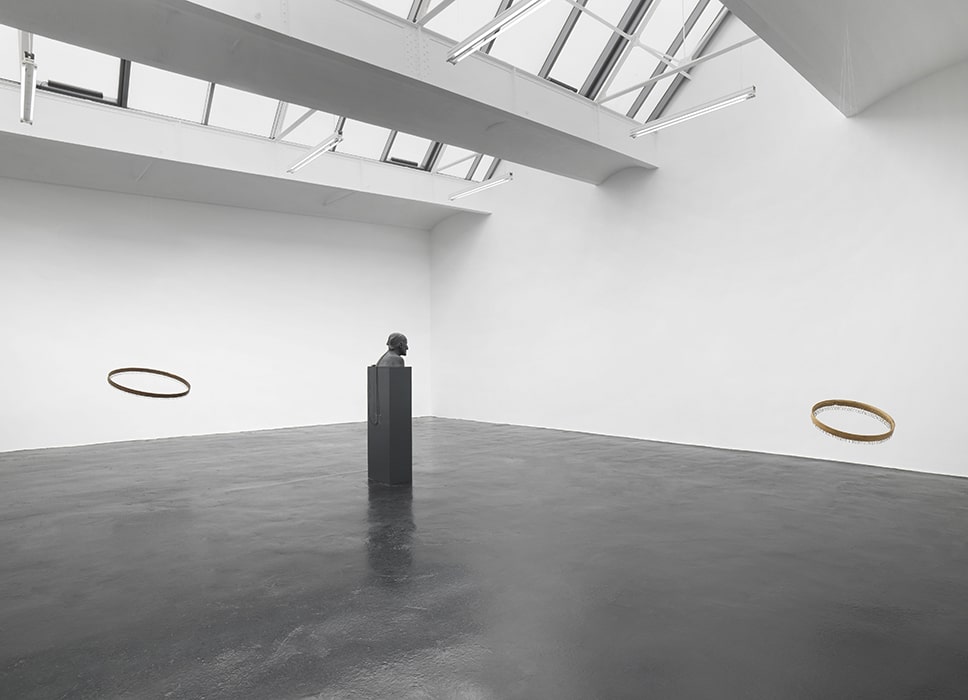
The public debate on restitution, i.e. the return of artefacts to their countries of origin, which has been going on for some years now, provided it is conducted in dialogue, shows the complexity of the situation. Who decides on the basis of which criteria? Where exactly are artefacts returned to? What reasons are given? Who is – then as now – excluded from the dialogue? And doesn’t the discussion also serve to legitimise the (post)colonial systems of knowledge and power? Who writes the stories? And what is being overwritten, over and over again? What do the works that have become “catastrophic art” (“Catastrophic Art”, Fazil Moradi) speak of?
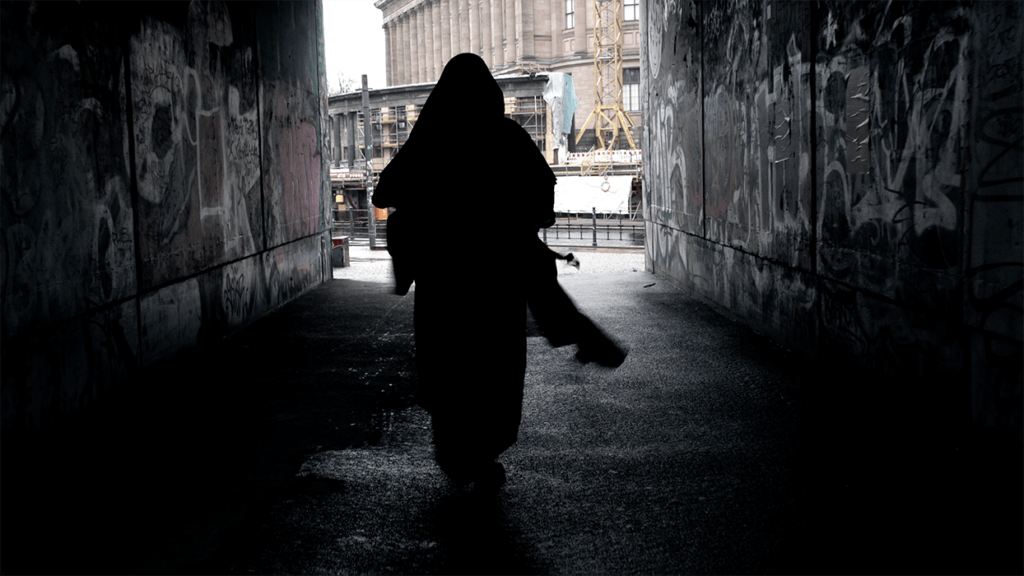
The artistic-discursive search for erased and unavailable knowledge incorporates the museum archives and goes beyond them. The institutions are also spaces that proclaim the absolute usability of life. Is it possible to imagine a common vision for artefacts and entities beyond national borders, for their traces and histories? And can this vision carry us into the future, on this side and beyond death?
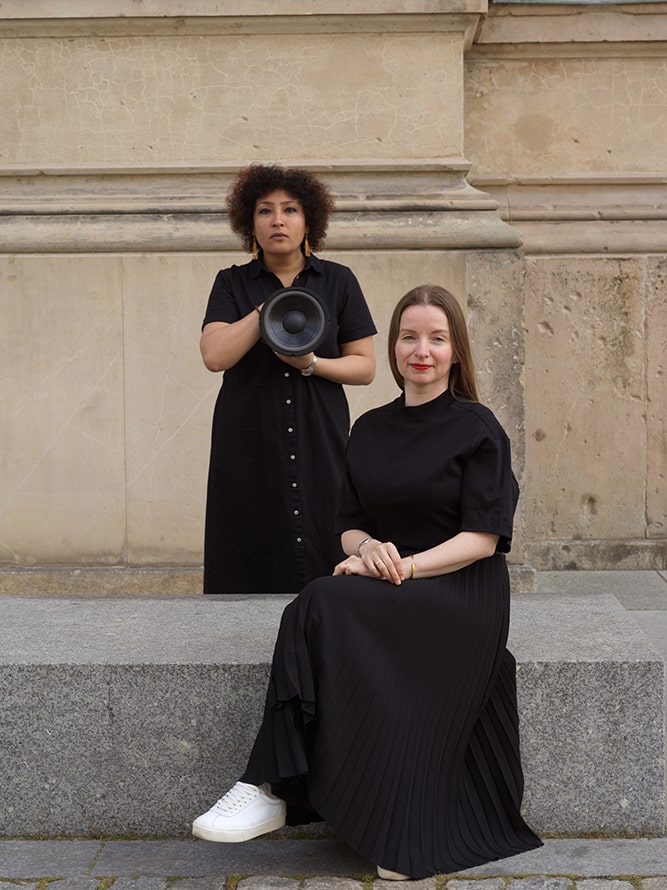
The artistic contributions to the festival are new productions and deal with ancient Egyptian entities, mythologies of non-Western antiquity or explore the relationship between social space the relationship between social space, belonging and community. In the discursive section, various patterns of argumentation and behaviour of museum institutions will be discussed from both a historical-critical and a practical perspective. The festival will conclude with a round table discussion that will provide an outlook for the common future based on the topic of “remembrance”.
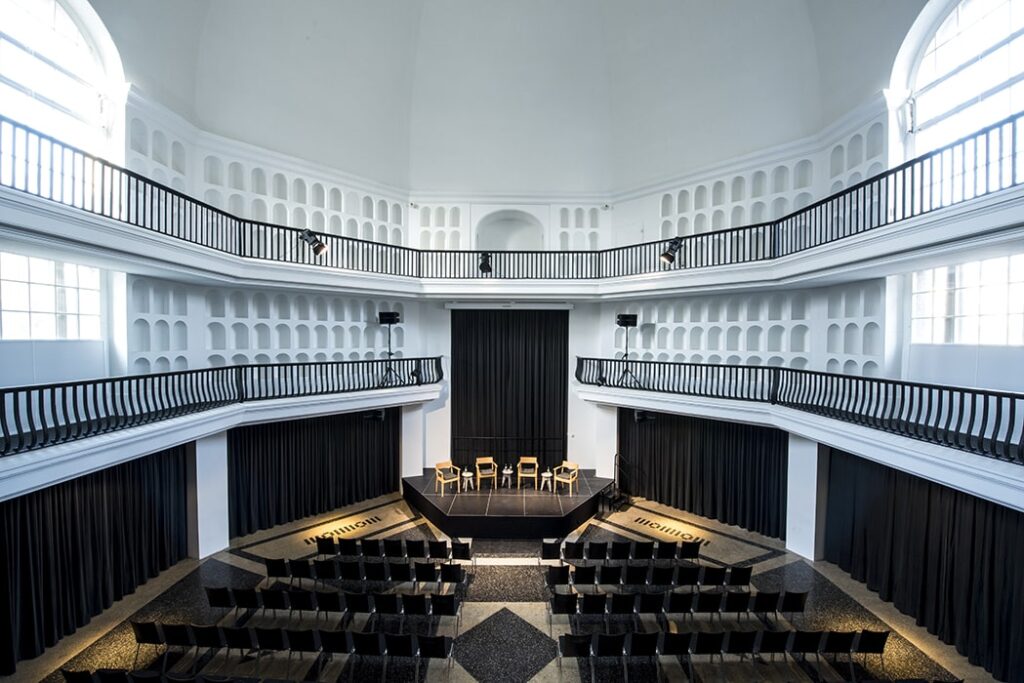
To get in the mood:
Close your eyes. Go back in your mind’s eye to the archaeological or Egyptian Museum that you last visited. Go to an artefact of your choice, or one that you remember well. Try to remember its name, or what you think its name is. You can also give it your own name. Now say this name out loud. Pause and try to imagine the artefact in detail and memorise its shape. Then turn away from the artefact and mentally leave the museum without turning around. Open your eyes, take a moment and then return to your everyday life. You will soon see the artefact from your imagination again when it visits you. Do not be afraid of the encounter.
Team:
Concept and artistic direction Elena Sinanina Scenography and lighting design Shahrzad Rahmani Project management Anne Diestelkamp Dramaturgy Yunus Ersoy Sound design
Christopher von Nathusius Scientific Consultancy Johannes Auenmüller, Kerylos Boules Aziz Consultancy Oliver Baurhenn Collaboration Production Kristin Buddenberg Photography Lutz Knospe, Nick Ash Press Relations Rafael Sergi Graphics Birgit Karn English Translation
Matthew James Scown Translation into plain language Anne Diestelkamp.
Funded by the Senate Department for Culture and Social Cohesion. In
co-operation with the BLACK LAND e.V. initiative, Studio Babelsberg, the Kunstraum Kreuzberg and the silent green Kulturquartier. With the kind support of Collegium Hungaricum Berlin.
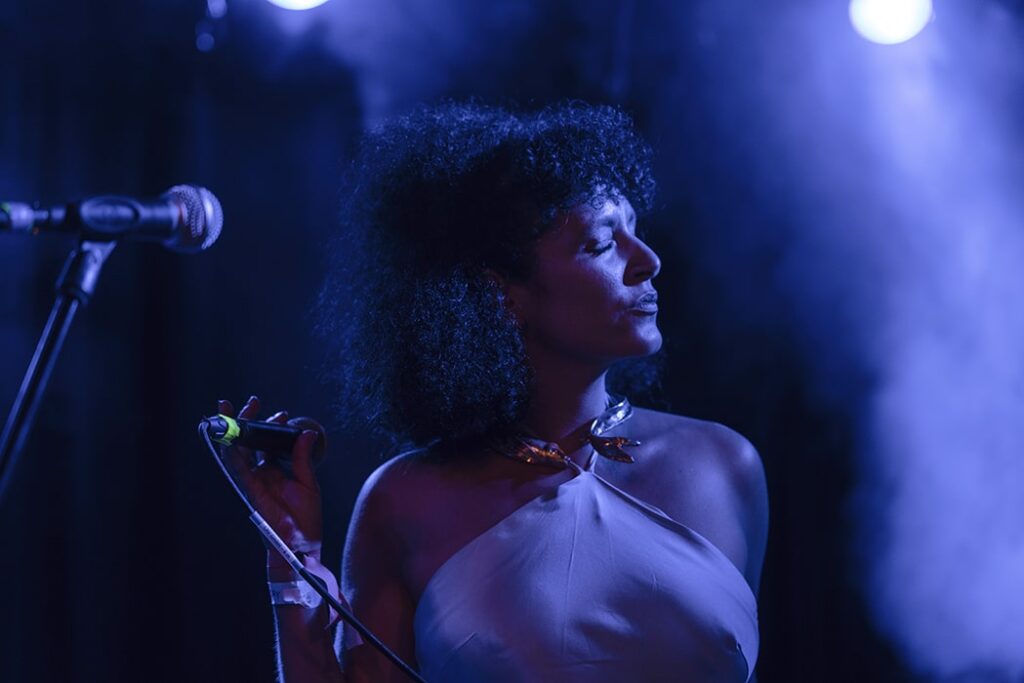
Initiative BLACK LAND e.V. Board of Directors: Elena Sinanina, Yara Mekawei
The events will be held in English. The final discussion on 28 December 2023 will be translated consecutively into German. Information in plain language is available at the venues.
Statement on anti-discrimination
The BLACK LAND, RED LAND – RESTITUTE festival offers space for encounters and exchange. The organisers do not tolerate racist, anti-Semitic, Islamophobic, homophobic, trans*phobic, sexist or any other form of racial discrimination or hostility towards other groups.
If you feel that your boundaries have been violated, please contact one of staff members. The organisers reserve the right to make use of their right of access and prohibit people who commit racist, anti-Semitic, Islamophobic, homophobic, transphobic, sexist or other inhuman acts from entering the event or excluding them from the event.
Exhibition and performances
YARA MEKAWEI
HANI MOJTAHEDY
CEVDET EREK
ATTILA CSIHAR
LEA DRAEGER
HOUAÏDA
Discourse
FAZIL MORADI
MONICA HANNA
NORA AL-BADRI
LÉONTINE MEIJER-VAN MENSCH
SARAYA GOMIS
JOHANNES AUENMÜLLER
NN (Staatliche Museen zu Berlin, Stiftung Preußischer Kulturbesitz)
ELENA SINANINA
YARA MEKAWEI
YUNUS ERSOY
OLIVER BAURHENN
SANDEEP SODHI
and
“ÄM 53”, a commemoration in public space (further information will follow in due course).
WHERE?
silent green
Kunstquartier Bethanien
Palais am Festungsgraben
öffentlicher Raum
WHEN?
From Thursday, 21 December to Thursday, 28 December 2023


